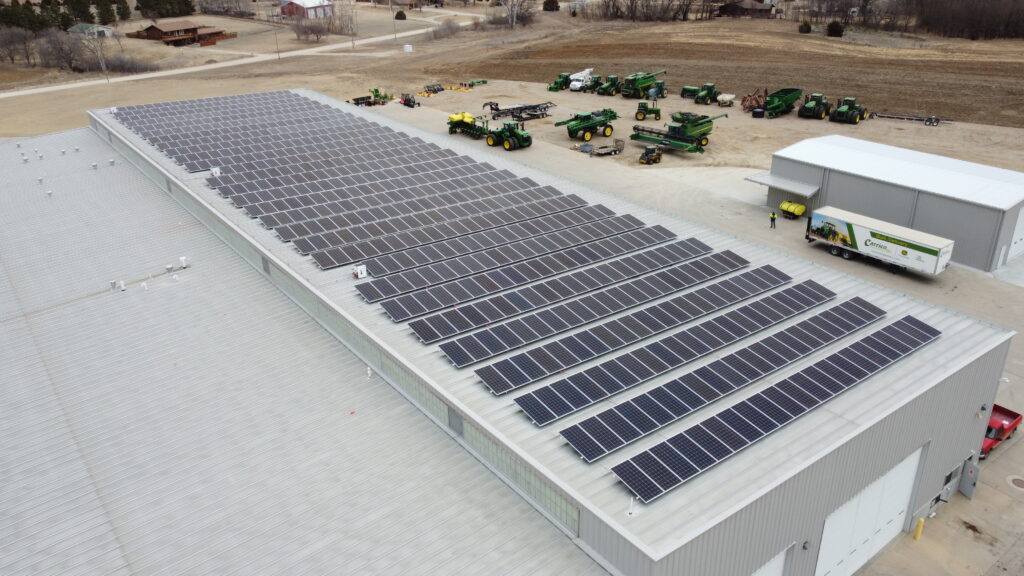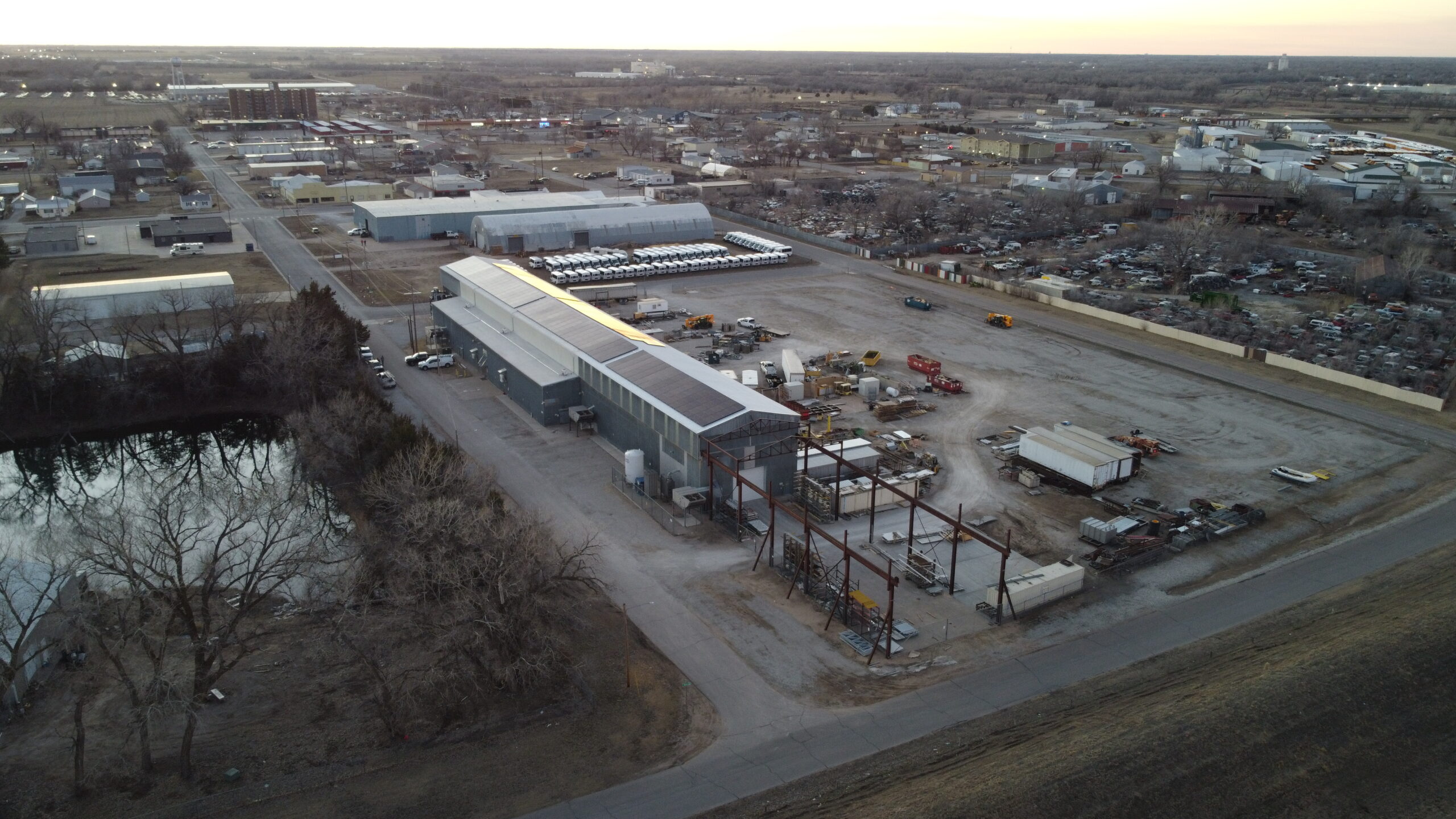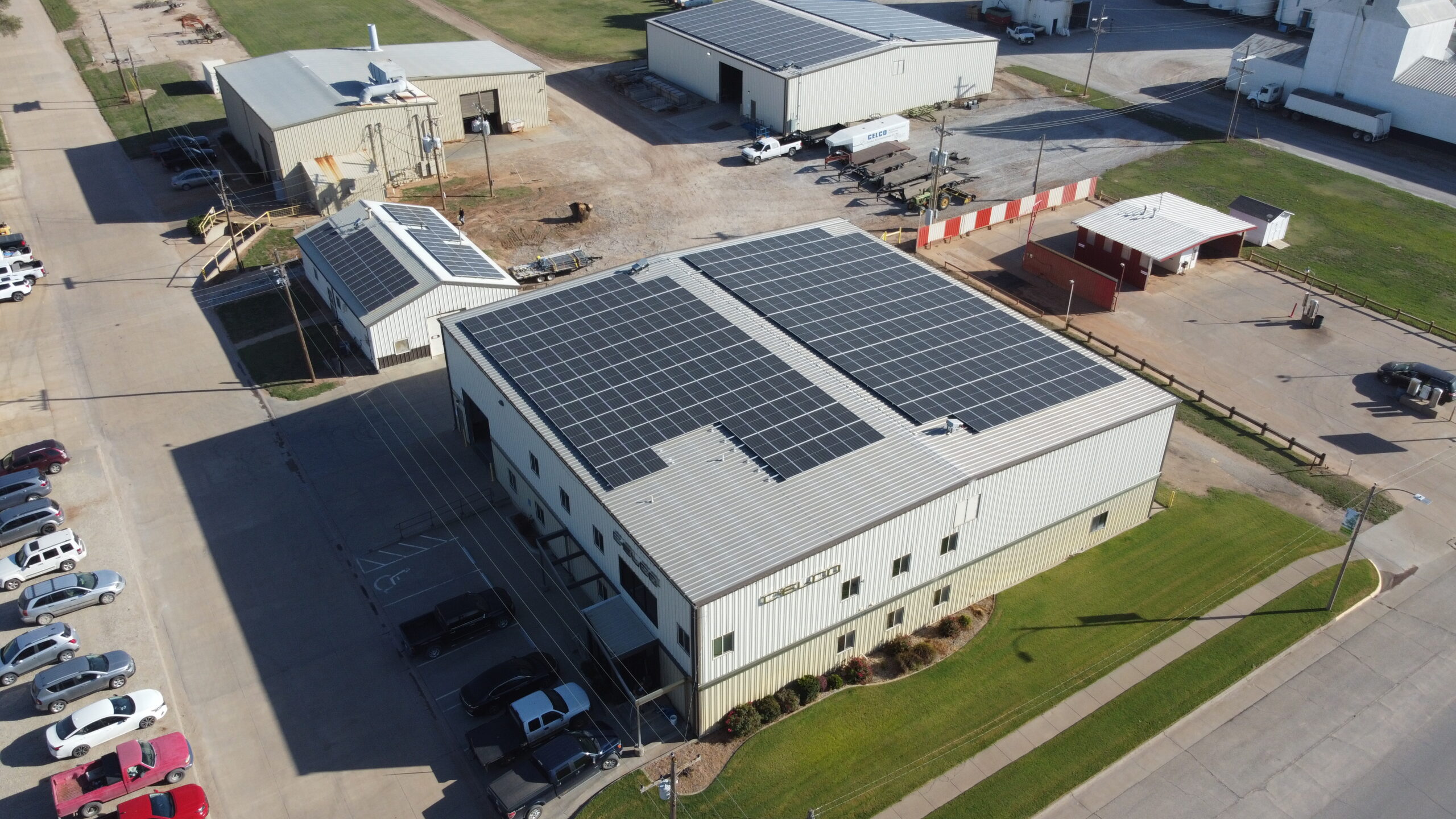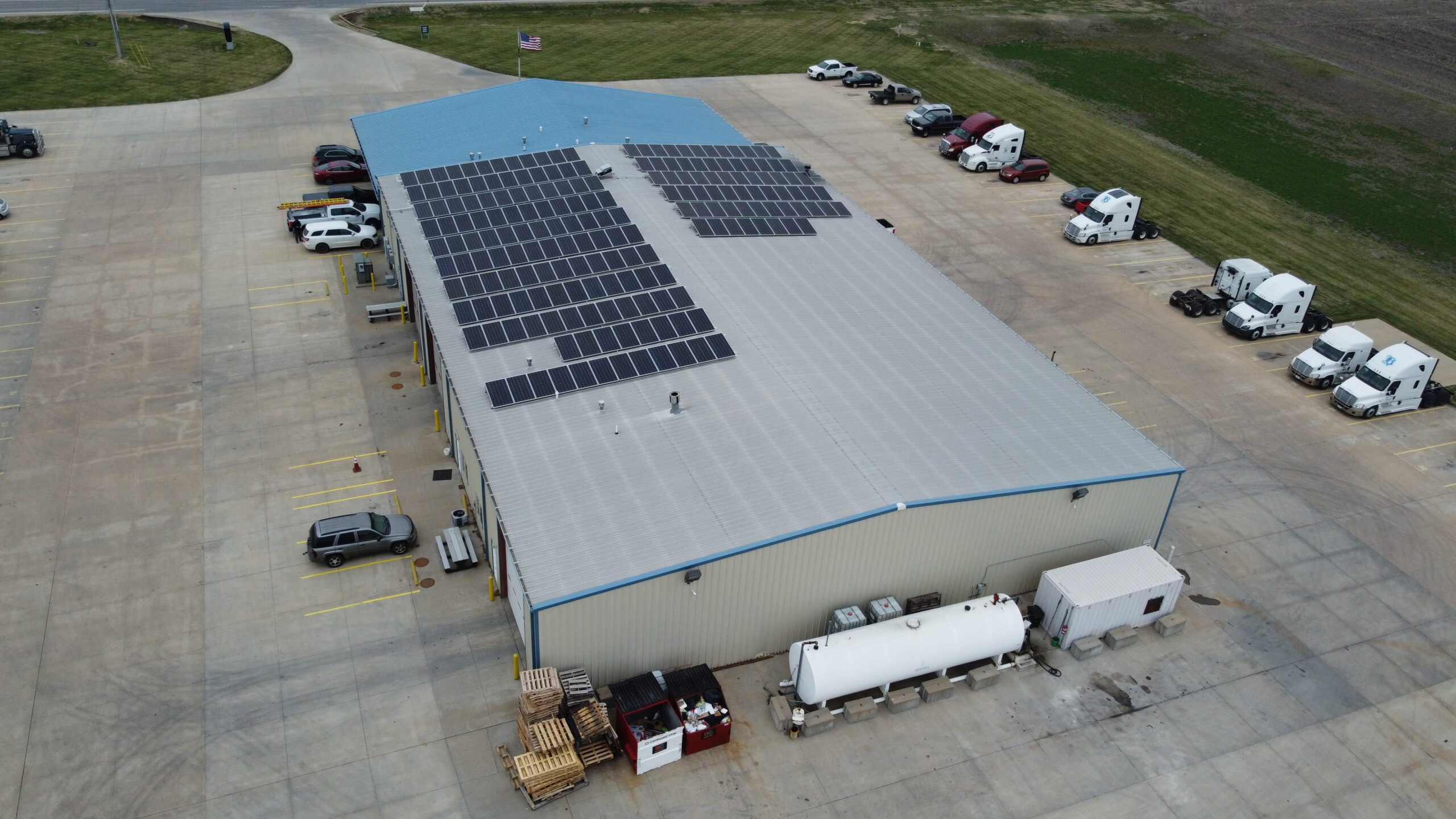Across industries, businesses are increasingly recognizing the financial benefits of utilizing solar energy. More than just an environmental choice, commercial solar is a strategic investment that delivers real, tangible returns. From lowering operating costs to maximizing tax incentives and increasing property value, solar energy offers an opportunity for businesses to strengthen their financial footing while future-proofing against rising energy costs.
In this blog, we’ll cover actionable, data-backed financial reasons why businesses are making the switch to solar. We will cover:
- Strategic Financial Benefits of Solar Energy
- Reduced Operating Costs and Utility Expenses
- Generous Tax Incentives and Rebates
- Accelerated Depreciation Benefits
- Boosting Property Value and Net Operating Income
- ROI and Long-Term Financial Savings
- Financing Options to Optimize Cash Flow
- Mitigating Energy Cost Volatility
- How Sustainability Meets Profitability
- How to Calculate Your Business’s Potential Solar ROI
- How to Take Control of Your Energy Future
Financial Advantages of Solar Energy for Businesses
Businesses are increasingly adopting solar energy, not just for its environmental benefits but as a smart financial move. From cutting costs to maximizing tax incentives, solar energy positions businesses for financial growth. Read on to learn the key financial motivations behind this trend and how solar can future-proof your operations.
Reduced Operating Costs and Utility Expenses
How does solar reduce utility costs?
Solar installations allow businesses to generate their own electricity, drastically reducing utility expenses. This stabilizes energy costs for decades, even as traditional energy prices rise.
Real-World Example:
The office building at 11125 NW Ambassador Drive leveraged solar to reduce its operating costs, boosting the property’s net operating income (NOI) by $19,529 in the first year alone. Over the system’s lifespan, the solar installation is projected to save $851,584.
For businesses with high energy demands—such as manufacturers and large facilities—these savings can be transformative, freeing up capital for reinvestment or operational improvements.
Generous Tax Incentives and Rebates
Solar energy systems come with a range of financial incentives, making it more accessible than ever for businesses to adopt renewable energy. The federal Investment Tax Credit (ITC) is a standout incentive, allowing companies to claim 30% of their solar installation costs as a tax credit.
Additional Financial Benefits of Solar for Businesses Benefits Include:
- State and Local Incentives: Many regions offer rebates or grants that complement federal programs.
- Property Tax Exemptions: Some states exempt solar energy systems from increased property tax assessments.
- Cash Rebates: Utilities and municipalities often provide rebates to offset installation costs.
Example:
The solar system at 11125 NW Ambassador recaptured over 77% of its total cost in the first year through ITC and accelerated depreciation.
Accelerated Depreciation Benefits
The Modified Accelerated Cost Recovery System (MACRS) offers businesses adopting solar the ability to depreciate their solar assets over a shortened period, usually five years. This depreciation reduces taxable income, providing additional financial savings in the early years of the investment. Combined with tax credits, this can reduce the upfront financial burden of solar installations significantly.
Impact on ROI:
By combining ITC, rebates, and accelerated depreciation, businesses can often see payback periods for solar systems reduced to 3–5 years.
Boosting Property Value and Net Operating Income (NOI)
How does solar impact property value?
Solar installations can significantly increase property value by reducing operational costs and making properties more appealing to potential tenants.
Case Study:
At 11125 NW Ambassador, the addition of a solar array increased the property’s value by $278,985 in the first year, based on a 7% capitalization rate. This gain resulted from the direct correlation between reduced operating costs and enhanced property desirability.
For owners of commercial properties, solar offers a dual advantage: higher NOI and a more competitive market position.
ROI and Long-Term Financial Savings
Investing in solar yields one of the most attractive ROIs in the energy sector. For most businesses, the initial investment pays for itself in 3–7 years, depending on the size of the installation and available incentives. After achieving payback, businesses continue to enjoy free or significantly reduced energy costs for decades.
Client Success Stories:
- A plastics manufacturer partnering with Artisun Solar achieved a faster-than-expected ROI of just 2.5 years, with annual energy savings of $30,000–$40,000.
- A company with three commercial properties reduced its electricity costs to zero for two buildings, further solidifying its long-term financial stability.
Financing Options to Optimize Cash Flow
Solar installation doesn’t have to involve a large upfront expense. Financing options allow businesses to adopt solar while maintaining healthy cash flow.
Common Financing Models Include:
- Federal Investment Tax Credit (ITC): the Federal ITC currently allows businesses to claim a tax credit worth 30% of their total solar installation costs.
- State-Specific Incentives: These incentives vary by location, and we’ll work with you to identify and secure all available benefits to further reduce your upfront costs.
- USDA REAP grant: the USDA Rural Energy for America Program (REAP) grant program offers up to a 50% reimbursement on eligible project costs.
These flexible financing solutions ensure businesses of all sizes can benefit from solar without straining budgets.
Mitigating Energy Cost Volatility
Energy costs can fluctuate unpredictably due to market dynamics. Solar energy protects businesses from these fluctuations by providing a stable, predictable energy source. By offsetting utility reliance, businesses gain greater control over their operational budgets.
Strategic Advantage:
Fixed energy costs not only reduce uncertainty but also make long-term financial planning more reliable—a critical advantage in industries with tight margins.
Sustainability Meets Profitability
While financial benefits are a primary driver, sustainability plays an integral role in enhancing a company’s reputation. Customers, employees, and partners increasingly favor businesses that demonstrate environmental responsibility.
Data-Driven Impact:
- Consumer Preferences: according to the U.S. Department of Energy, In 2023, solar energy contributed to 55% of all new electric capacity added to the U.S. grid, a significant increase from 0.1% in 2010. This substantial growth underscores solar energy’s pivotal role in the nation’s transition toward sustainable and profitable energy solutions.
- Brand Perception: Businesses that switch to solar position themselves as leaders in innovation and environmental stewardship.
In short, solar energy supports both the bottom line and brand equity.
How to Calculate Your Business’s Potential Solar ROI
Here’s a quick guide to calculate the ROI of solar and estimate your savings:
- Analyze Current Energy Usage: Understand your annual electricity costs and consumption patterns.
- Evaluate Installation Feasibility: Consider factors like roof space, building orientation, and sun exposure.
- Factor in Incentives: Incorporate federal, state, and local incentives into your cost calculations.
- Estimate Energy Production: Calculate the potential energy your solar system will generate based on its capacity and your location’s sunlight hours.
Pro Tip: Schedule a solar assessment with Artisun Solar to receive a personalized ROI projection.
Take Control of Your Energy Future
Solar energy is more than a sustainable choice—it’s a strategic investment. By reducing costs, leveraging tax incentives, and improving property value, businesses can ensure long-term financial stability.
At Artisun Solar, we specialize in delivering customized solutions that prioritize ROI and client satisfaction. Our team provides end-to-end support, ensuring your transition to solar is seamless and profitable.
Get your solar assessment and start saving today!
Learn more by checking out our Guide To Solar Savings: Understanding the ROI and Benefits of Commercial Solar Energy





